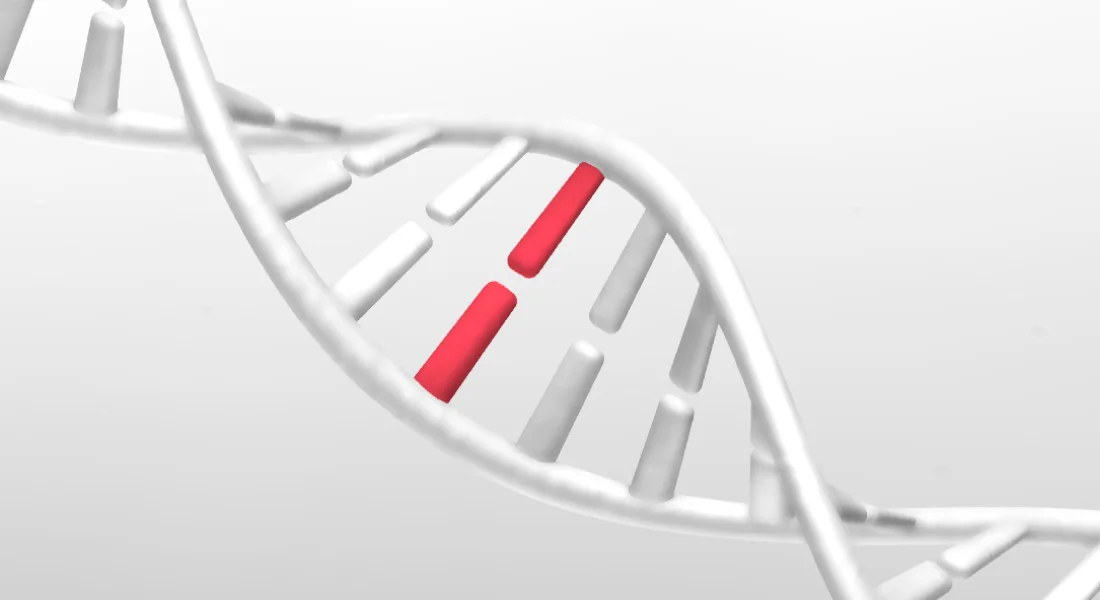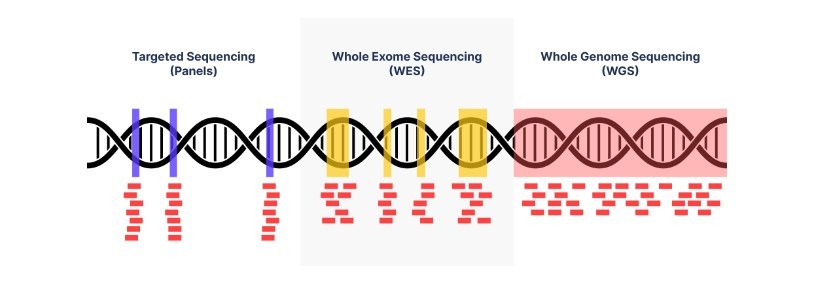Why is Panel Sequencing Being Replaced?

Panel sequencing is being replaced
In recent years, the use of genetic testing has become increasingly important in the diagnosis of rare diseases. With more than 7,000 rare diseases affecting over 400 million people worldwide, identifying the underlying genetic cause of these conditions can be a challenging task for clinicians.
Panel sequencing has shown great promise in the diagnosis of rare diseases, particularly those with a suspected genetic basis. However, it is gradually being replaced by other NGS methods.

Panel sequencing
Panel sequencing is a targeted approach that looks at a specific set of genes associated with a particular condition or group of conditions. This approach is often used when the clinician has a strong suspicion of a particular genetic disease and the test is tailored to confirm or exclude that suspicion.
However, panel sequencing has significant limitations when it comes to rare diseases. Due to the rarity of these diseases, there is a probability that the genetic variant responsible for the disease is not included in the panel being tested. As a result, panel sequencing can lead to delayed diagnosis or undiagnosis. The limitations should be taken into consideration, and more comprehensive approaches such as WES or WGS may be necessary in cases where the initial panel sequencing is inconclusive or where a more comprehensive analysis is required.

Whole exome sequencing (WES)
Whole exome sequencing, on the other hand, is a comprehensive approach that examines all the protein-coding regions of the genome, known as the exome. This approach provides a much broader view of the genome and can detact variants in genes that are not commonly associated with a particular rare disease. This is particularly important in the diagnosis of rare diseases, where the underlying genetic variant may not be well understood. Exome sequencing can also detect variants in multiple genes simultaneously, which is useful in cases where the patient has symptoms that are not consistent with a single genetic disease.
Another advantage of exome sequencing is that it can identify new genetic variants. In many cases, the genetic cause of a rare disease is not yet known, and exome sequencing can provide valuable insights into the pathology of the disease. By identifying novel variants, researchers can develop new treatments and therapies for these conditions.
However, it’s important to note that whole exome sequencing may not be appropriate for all patients. In some cases, a targeted panel sequencing may be more effective, particularly if a specific genetic condition is strongly suspected. In addition, whole exome sequencing may reveal variants of uncertain significance (VUS), which can be difficult to interpret and may not be helpful in making a diagnosis. This is why reanalysis of whole exome sequencing data is necessary for the diagnosis of rare diseases.
Reanalysis of WES data for Rare diseases
Reanalysis of WES data involves re-evaluating the sequencing data using new and updated reference data sets, as well as new algorithms and analysis methods. There are few reasons why reanalysis of WES data is important.
First, as our understanding of the human genome and associated disease continues to evolve, new genetic causes of rare diseases are being discovered. Reanalysis of WES data can help identify theses new genetic causes that may have been missed in the panel sequencing. This can lead to more accurate diagnoses and potentially life-saving treatments for patients.
Also, the analysis of WES data is an ongoing process. As new reference datasets, algorithms and analysis methods become available, the interpretation of WES data may change. Reanalysis of WES data can help ensure that patients receive the most accurate and up-to-date genetic diagnoses.

Decreasing of WES/WGS price
As the price of whole exome sequencing gradually decreases, the benefits of this approach make it a more reasonable choice for diagnosis rare diseases. The ACMG, which sets global diagnostic criteria, strongly encourages the use of exome and genome sequencing as the first tier test for individuals with ID/DD/NDD. It is also recommended for cases where panel sequencing was inconclusive or where the patient’s symptoms are not consistent with a single genetic disease. Genetic testing technology is evolving every day. The more comprehensive the approach, the greater the likelihood that patients will get answers.
- If you want to know more about decreasing of WGS price, refer this article
Get exclusive rare disease updates
from 3billion.

YoonJung Shin
Content Marketer







